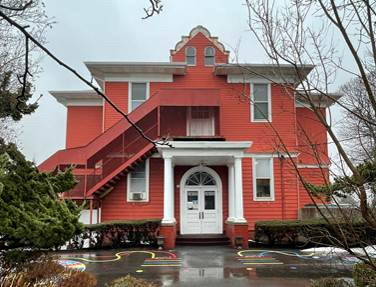It seems there’s more to remodeling than meets the eye.
Beyond the desire for a better life, a welcoming and more functional environment, and a higher return on investment, what’s really behind the renovation addiction that has been sweeping the country in recent years?
It’s complicated. But experts agree there’s a strong emotional element that fuels every home improvement decision or for that matter, the decision not to renovate. It’s like the battle of the reno junkies vs. those nostalgic types, who like the familiar and prefer to save their money, only updating as needed — and sometimes even choosing to maintain their home’s original retro vibe.
THE NOSTALGIA CONNECTION
Krystine Batcho a licensed psychologist and professor of psychology at Le Moyne College in Syracuse, says people have an emotional investment in their homes.
“When a person has some control over their residence, psychologically their home becomes an extension of them,” she says. “More than a collection of things, it’s also the reservoir of some of life’s most important experiences and memories. The table in that kitchen is where people who love one another shared more than food and drink; they shared the joys, successes, disappointments and worries of their lives.”
Many homeowners seem dissatisfied with the look and functionality of their dwellings. Indeed, a swankier kitchen or bathroom may be breathtakingly transformative. But is it truly warranted?
THE HAPPINESS FACTOR
Covering up a home’s former self has its plusses and minuses. Like plastic surgery, it should be done for the right reasons. And like a facelift or butt lift, it doesn’t guarantee happiness in the long run.
“When someone feels stagnant or stuck in their situation, their career, relationship, or their personal growth, they might hope that a major change in their home will be the catalyst to get things moving again,” Batcho explains. “Renos to accommodate changing physical or family needs will be considered successful to the extent that they meet those needs. But the impacts of projects that are inspired by emotional or psychological motives are more complicated.”
For example, a reno that makes a space more conducive to social interaction, or more efficient, freeing up time to spend with others, is more likely to enhance a person’s quality of life, or a new dishwasher that gives a family more time to sit and talk can contribute to healthier relationships.
“Objects do not, in themselves, make people happy,” she says. “Happiness depends more on experiences. How an object is used affects how happy it makes someone.”
IS NEWER BETTER?
A reno motivated by emotional or personal dissatisfaction is less likely to resolve an underlying unhappiness.
“People expect newer to be better and that remodeling a space will provide the same type of happiness boost as from a newer model of TV or smart phone,” Batcho notes. “If the final result fails to meet expectations, the disappointment can lead to unhappiness and remorse. It’s important to be realistic about what a shiny new space will provide.”
Babylon Village designer Sandra Asdourian says her clients fall into one of three “emotional” groups.
“The first group wants to mix their existing furnishings with new, keeping some of the furniture they have for an updated look,” she says. “The second wants all-new ‘everything.’ The third has a hard time letting go of something unless it’s broken or unusable … but there are always ways to update, i.e., chairs can be reupholstered, wood furniture refinished or painted.”
WANTS VS. NEEDS
It’s important to be practical.
“With my clients, the emotional aspect of doing a reno is the desire to update their décor to be in alignment with their lifestyle,” says Asdourian. “But in some cases, the need is there — maybe the wife loves to cook and the kitchen’s layout doesn’t work for her cooking style or comfort. Or, they have a new baby or elderly parent living with them and need an extra bedroom.
“My goal is to deliver a space they can call home,” she continues. “It’s a place for their family to not only live in harmony but to be filled with great memories. So, if they have an antique piece that was their grandmother’s, we will work it into the design plan. Because it’s not just a house, it’s your home.”
































